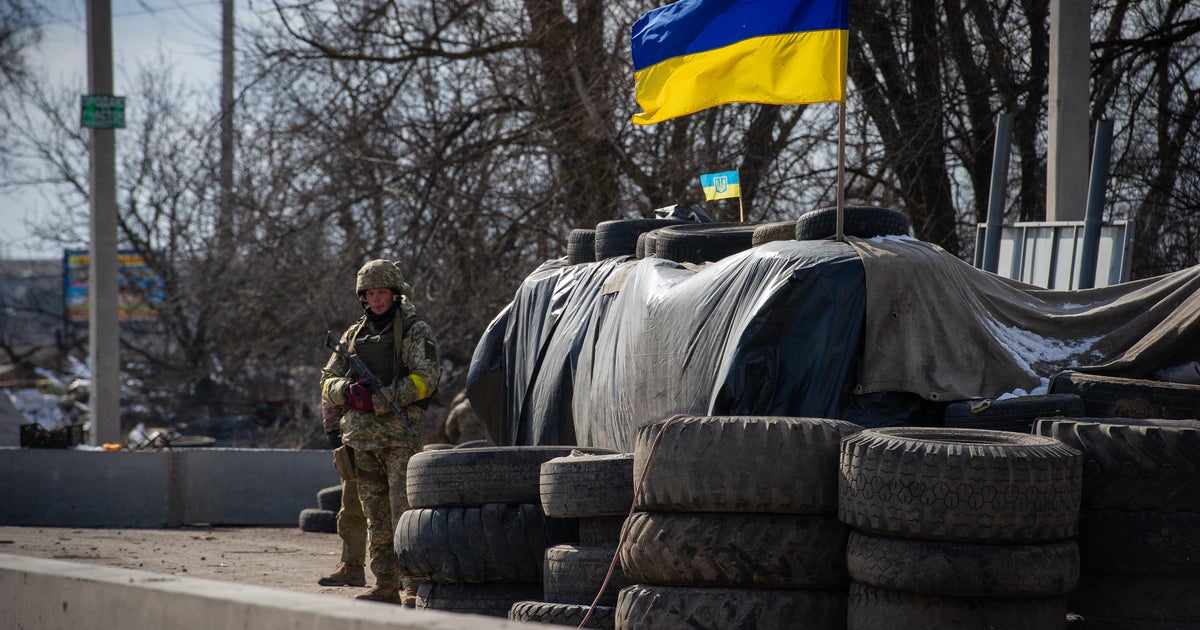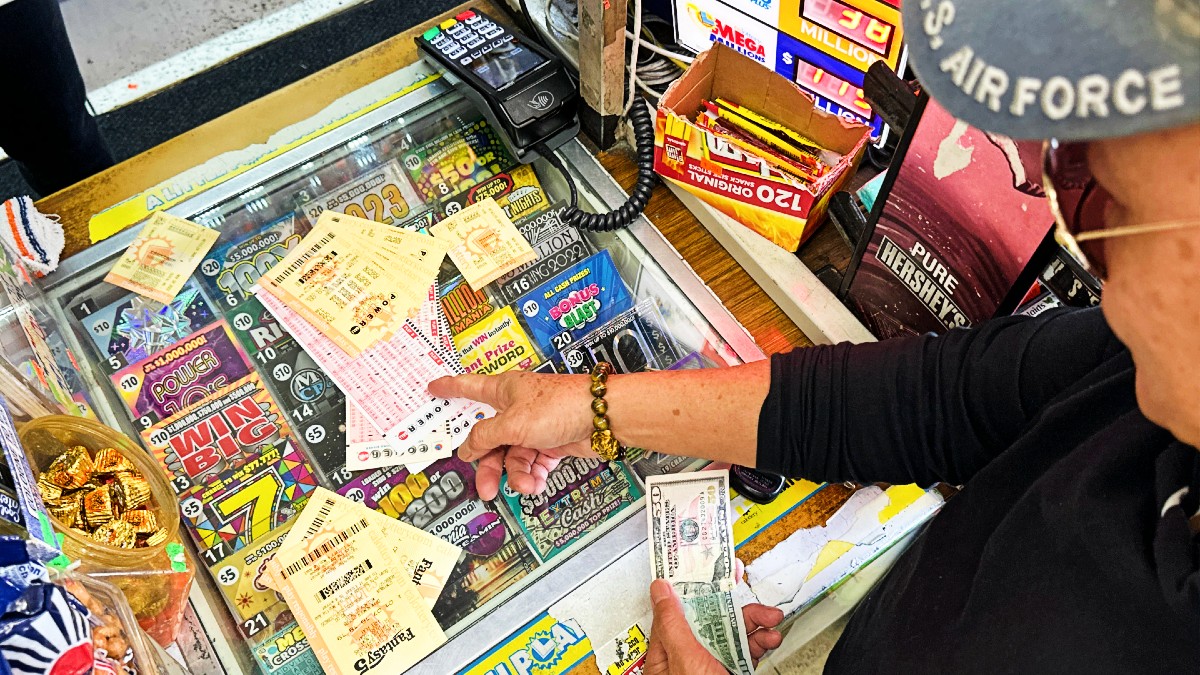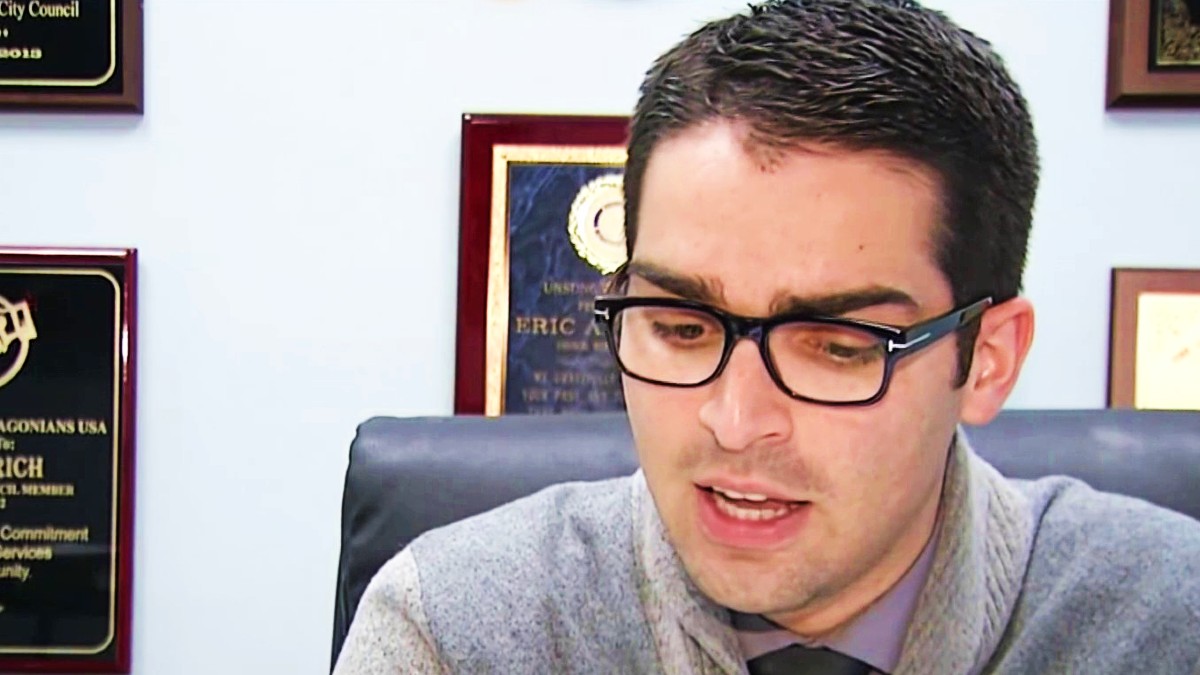Co-chair of Ukraine Caucus says Ukraine should be treated like NATO member –

After Russia escalated its attacks on Ukraine this week, with the bombing of a children’s and maternity hospital and repeated shelling near nuclear facilites and civillian areas, Rep. Mike Quigley, Democrat of Illinois, said it’s time that Ukraine is treated like a member of the North Atlantic Treaty Organization (NATO). And the U.S., he argues, should be doing more to help Ukrainians defend themselves.
“Ukraine has earned being treated like it’s a NATO member,” Quigley, who is co-chair of the congressional Ukraine Caucus, told CBS News chief Washington correspondent Major Garrett in this week’s episode of “The Takeout” podcast. “[Ukraine’s] fight is the fight and the argument to form NATO in the first place, at least in spirit.”
Last weekend, Quigley and other members of Congress joined a call with Ukrainian President Volodymyr Zelensky to talk about how the U.S. can further aid Ukraine. Zelensky asked the U.S. and western allies to enforce a no-fly zone over Ukraine, an idea that is not supported by NATO, the E.U. or the Biden administration, out of the fear that the war in Ukraine could escalate into a global crisis.
But Quigley believes the conflict has already escalated.
“We need to stop thinking about the fact that, well, maybe if we’re subtle about this, Putin won’t see this as an escalation, right? He clearly thinks the sanctions were an escalation. We tanked the ruble, his stock market, his economy, the disinvestment that’s taking place,” Quigley said. “Will planes bother him more? Or is this just building in the fact that the stingers and javelins are very effectively killing his soldiers and the war isn’t going the way he wants?”
In addition to a no-fly zone, Quigley said the U.S. should send more military aircraft to Ukraine, regardless of their origin. Earlier this week, the Pentagon rejected offers from Poland to transfer MiG-19 jets to U.S. forces, which would then be delivered to the Ukrainian military. The Pentagon called the proposed transfer “untenable.”
“This is a humanitarian crisis at its core, and we have to do more,” Quigley said. “Our whole point was to help Ukraine defend itself. So this is the time to do it.”
Quigley also said a potential Russian false flag event that could serve as a pretext for a Russian chemical or biological weapon attack is not surprising, given Russian President Vladimir Putin has used such weapons in the past.
“The best indicator of future activity is past activity. Obviously, the invasion is a gross violation of international law. For us to imagine that once [Putin] got in to Ukraine had suddenly follow the speed limit is ridiculous,” Quigley said. “I think as he gets particularly angry, more and more angry and frustrated with how things are proceeding that these are very real threats and again, they are why we need to remind ourselves this isn’t the Ukraine problem, this is a problem for the region, for Europe and of course, for the U.S.”
Highlights
-
On the ongoing crisis in Ukraine: “It’s obviously a tragic situation. Europe is at war, the United States is at war. I don’t know that we necessarily have that figured out. But clearly, President Putin feels that we are at war with him and he is battling all of NATO as a proxy war. But that could change very quickly. So this is a very scary situation. This is our greatest foreign policy challenge in Europe since 1945. For those of us who have lived in the majority of the Cold War, many of the scenes that we are witnessing and could witness are reminiscent of our childhood: nuclear fears, missiles conceivably being planted in Cuba and Central America. I guess part of my message is if anyone thinks that we’re not engaged with a conflict with Putin, that they’re just not seeing the situation.”
-
Arguing for no-fly zone over Ukraine: “I think we need to stop thinking about the fact that, well, maybe if we’re subtle about this, Putin won’t see this as an escalation, right? He clearly thinks the sanctions were an escalation. We tanked the ruble, his stock market, his economy, the disinvestment that’s taking place. He dramatically underestimated Western resolve and unity. But he calls it an economic war, which is clearly a war… Will planes bother him more? Or is this just building in the fact that the stingers and javelins are very effectively killing his soldiers and the war isn’t going the way he wants? So I have seen leaders in the West go sort of back and forth about how we might protect the air above Ukraine… I saw a hospital get leveled. It’s hard to say, ‘well, let’s quibble over whether they come from- the planes come from Germany or Poland.'”
-
No-fly-zone over Ukraine: “At this point in time when hospitals- a maternity hospital is flattened and escape routes for refugees are being blocked and war crimes are being committed, you know, we have to ask ourselves… in the final analysis, where do we draw the line? Where do we say, ‘Well, that’s different.’… Clearly, the airspace matters. The Russian artillery is doing extraordinary damage. So, you know, what do they need? They need the continuation of the weapons that we’re already giving them. They need help in the air and that would probably include drones. And maybe they need missiles to take down Russian planes. All of this is escalatory. But can we let Putin be the only one that escalates?”
-
NATO and Ukraine: “To say that we would fight for every inch of NATO and risk what everybody says, ‘Well, Quigley, you’re risking an escalation to a Third World War,’ But we are already making that decision when we say we would do that for Poland or to Germany, because they’re NATO. I would add, Ukraine has earned being treated like it’s a NATO member. Its fight is the fight and the argument to form NATO in the first place, at least in spirit.”
-
Should U.S. send military aircraft into Ukraine? “I am, for the same reason we’re giving them javelins and stingers. Putin is not going to make this a distinction. He is going to see it as we’re giving them lethal aid regardless… This is a humanitarian crisis at its core, and we have to do more… Our whole point was to help Ukraine defend itself. So this is the time to do it.”
-
Putin and potential use of chemical or biological weapons: “The best indicator of future activity is past activity. Obviously, the invasion is a gross violation of international law. For us to imagine that once he got in to Ukraine had suddenly follow the speed limit is ridiculous… We’re hearing that evidence is being collected of the use of cluster bombs, vacuum bombs targeting civilian populations, blocking refugee escape routes… [Putin] has committed war crimes and atrocities in Syria, Chechnya… kidnapping, torture, murder, hostage taking, looting, chemical. So I think as he gets particularly angry, more and more angry and frustrated with how things are proceeding that these are very real threats and again, they are why we need to remind ourselves this isn’t the Ukraine problem, this is a problem for the region, for Europe and of course, for the U.S.”
Executive producer: Arden Farhi
Producers: Jamie Benson, Jacob Rosen, Sara Cook and Eleanor Watson
CBSN Production: Eric Soussanin
Show email: TakeoutPodcast@cbsnews.com
Twitter: @TakeoutPodcast
Instagram: @TakeoutPodcast
Facebook: Facebook.com/TakeoutPodcast
[ad_2]
Share this news on your Fb,Twitter and Whatsapp
NY Press News:Latest News Headlines
NY Press News||Health||New York||USA News||Technology||World News





